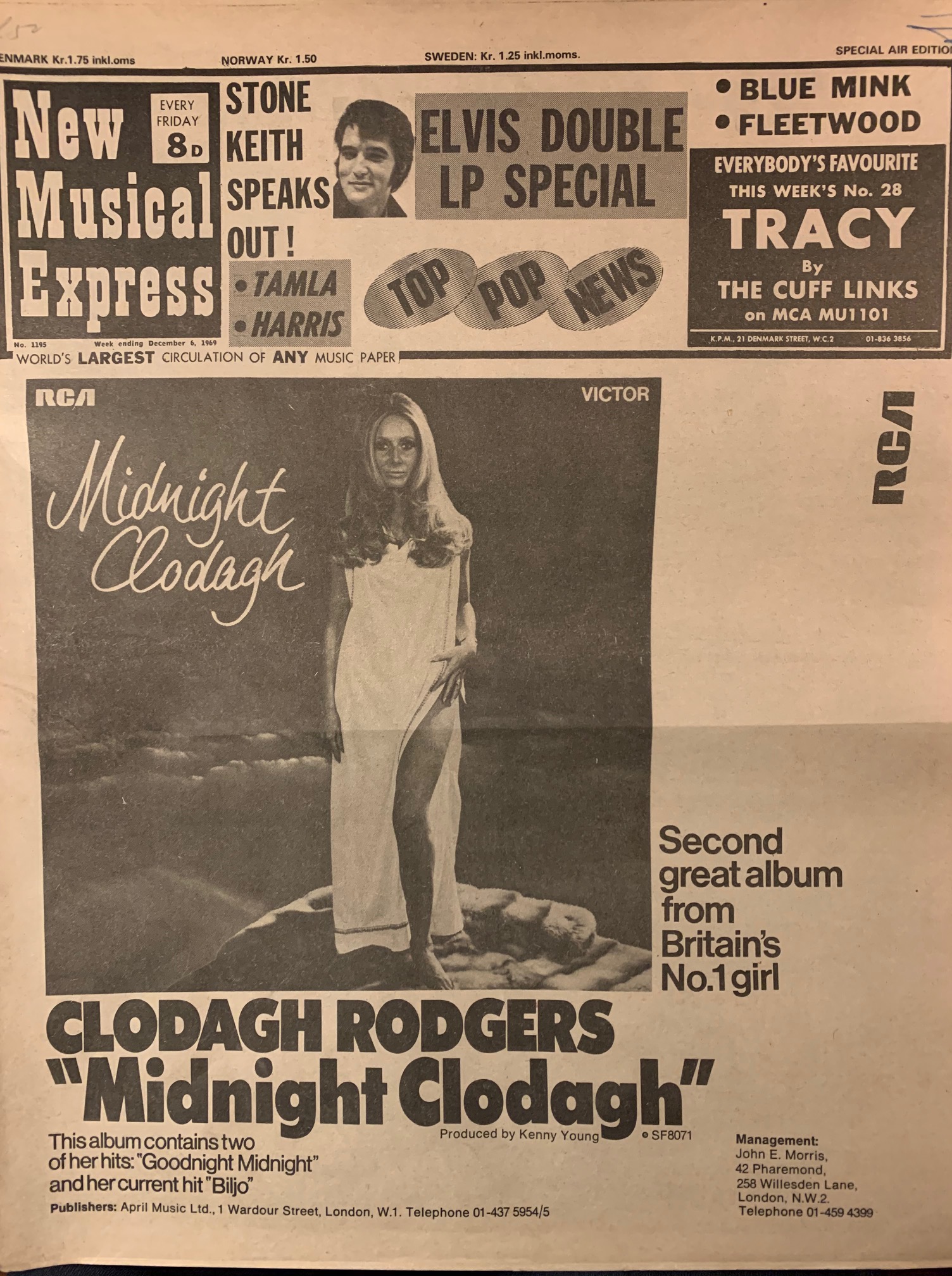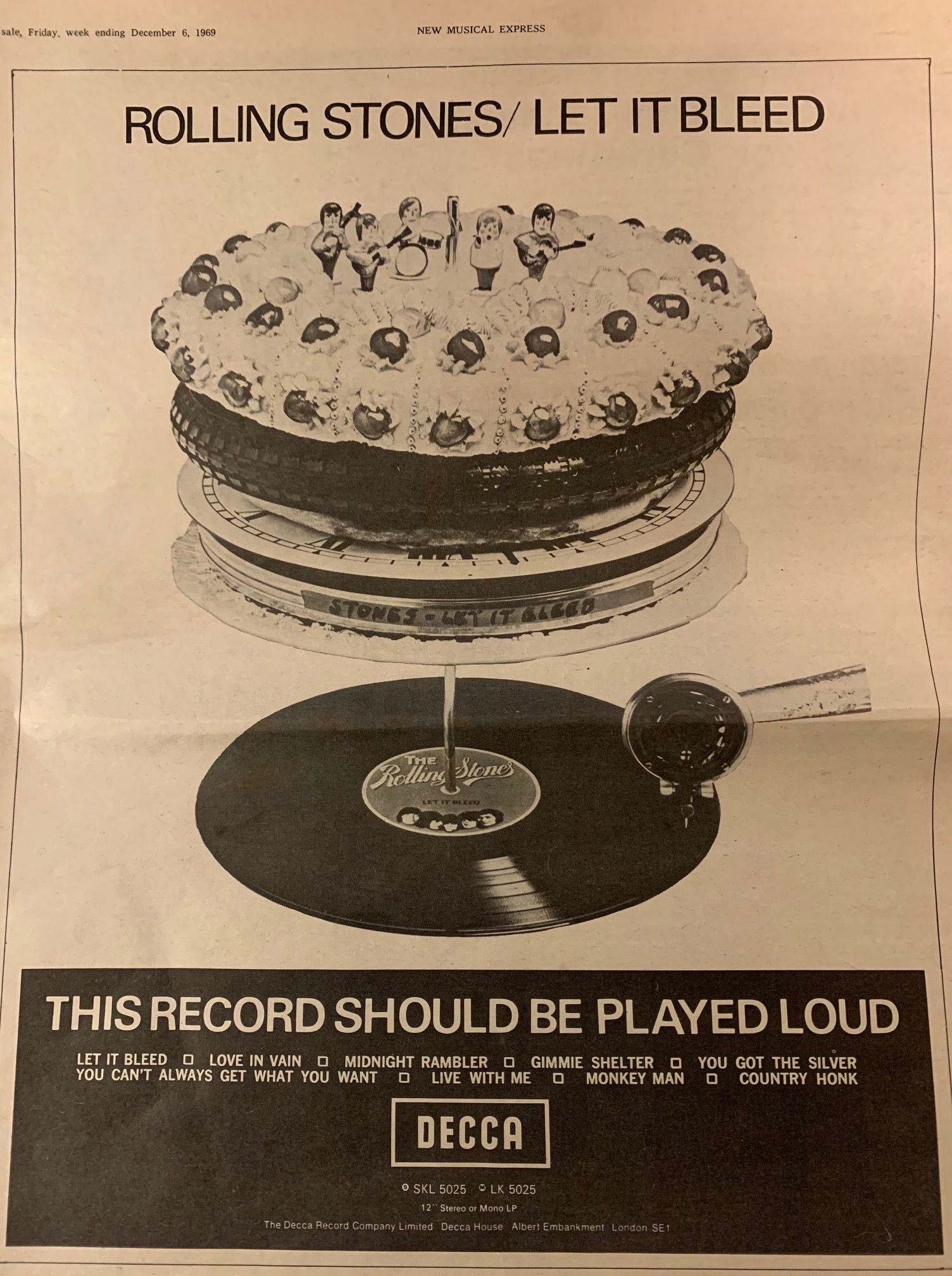Mr. John had amazing success early on and in this short but good article he tells it “all” and is amazed by George Harrison. By the way, $5000 is the same amount as $35,253 in 2021.
Read on!

Elton John commands largest price ever paid
By Ann Moses in Hollywood
IT took ELTON JOHN only one week to become a superstar, in the music industry in Los Angeles. After his nightclub debut at the Troubadour in Los Angeles, BILL GRAHAM, the influential owner of the Fillmore East in New York City, called John to offer him the largest amount ($5,000) ever paid to a new act at the rock ballroom.
UNI, Elton’s American record label held a Los Angeles press conference for the singer in a dark Universal City screening room. When John and his group were seated, he could not be seen, though we were able to hear his replies through a microphone set-up. We could not, however, hear any of the questions from the assembled journalists.
“Who are you here for?” one young man questioned another behind me. “Nobody,” he answered “Me, too,” the other replied. I wasn’t surprised. Along with a small number of the Hollywood pop press, UNI chose to invite high school and college campus newspaper reporters and the result was naturally a press conference fiasco. Many had managed to get in merely to have a closer look at this new star!
It was an embarrassing scene, quite unexpected, in fact, for an artist of John’s stature, however brief that position has been. Even though many questions were irrelevant and others were repeated several times, John seemed unthreatened and answered each with concern and seriousness.
During the course of the “conference,” John did contribute the following comments, “American audiences are much warmer than English audiences. English audiences are more reserved. In England you really have to prove yourself to an audience. Here you go out on a stage and you feel as if they’re on your side to start with. The English audiences have been kind to us, they’re just a little more reserved.
“Bernie (Taupin, his lyricist) and I are sort of like brothers. We’ve known each other for quite a while and we know each other inside out. Even though we’re complete opposites, I usually know what he’s getting at in a song, so it doesn’t matter if I don’t feel the same way, I can sing the song and mean it.
“(The success) amazes me! I can’t believe it. In England it has happened gradually, by word of mouth. But here — I still haven’t taken it all in. I still can’t believe it. It’s really fantastic, but it’s still too quick to think about it.
“Leon Russell is my favourite artist. He’s my idol. He’s the person I look up to most.
“When people say I sound like Joe Cocker they must be deaf. They’ve also said I sound like Feliciano, maybe it’s the dark glasses.
“I’ve been knocked for doing rave-up-type numbers on stage; but it’s spontaneous, I just enjoy what I’m singing and I give it everything I’ve got. If I’m not exhausted when I come off stage, I don’t feel like I’ve done a good show.
Natural
I’ve had to turn people down when they’ve said “Please write a song for me.” I can’t sit down and write that way. Writing is a natural thing and I write a song when I feel like it. For `Your Song,’ Bernie was very hung up on somebody at the time and it just happened.
“The procedure we follow in writing songs is that Bernie gives me the lyrics and I put them on top of the piano. Then when the mood strikes me, I sit down and write. He’s really good. I can’t write lyrics, and he can’t keep time. We don’t collaborate at all. I know people don’t believe it, but it’s true.
“Music is music, whether it’s the Archies or Led Zeppelin. I don’t think there’s any division in music or that there should be. Someone will put this group down or that one, but it’s all music. It’s a thing in England to put down Ten Years After every week. It’s ridiculous.
“Our songs go through different feelings, depending on the mood we’re in. This album is happy, down home. It’s just how we write songs. Our next album is much simpler. What I’m striving for is simplicity in lyrics and simplicity in music.
“George Harrison’s new album just floors me! It astonishes me how he has suddenly emerged as a fantastic writer, probably better than Lennon-McCartney!”
At this point in the already hectic conference UNI executives interrupted John to say that he had to be photographed with some of the record company executives. So as they paraded towards the front of the screening room to be photographed, I made my way out.

If you have a large collection of the following magazines, don`t throw them out, but contact me as I would be very interested in these: Creem, Circus, Hit Parader and Metal Edge.
If you have a music-related web-page where this fits – please make a link to the article. With credits to the original writer of the article from all of us music fans!




